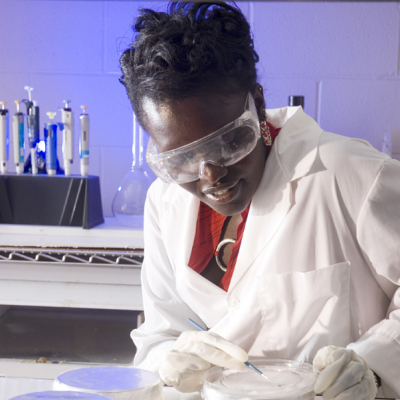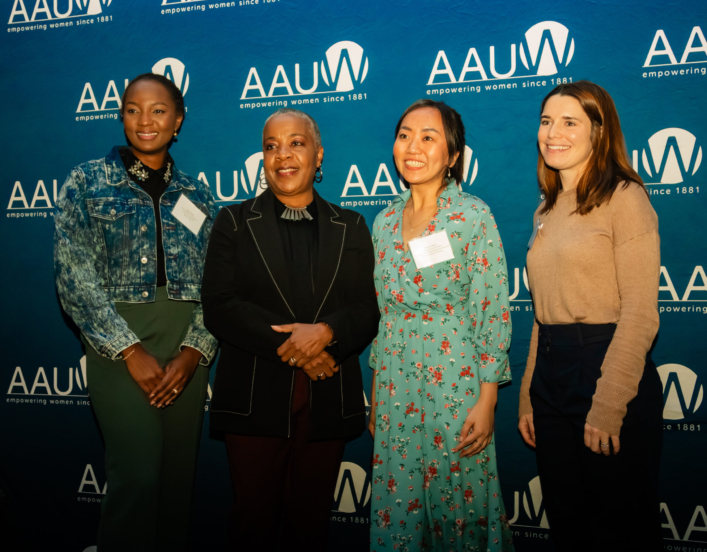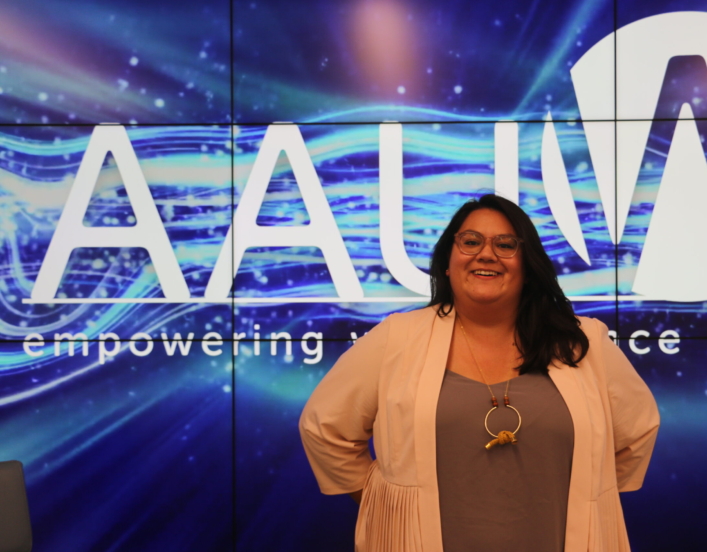3 Questions for Esther Ngumbi
Quick Tip
A strong mentoring relationship happens only when mentees feel that they can trust their mentors. So mentors should create a safe space in which people feel comfortable sharing their challenges and fears.

For Esther Ngumbi, Ph.D., studying insects was never merely an academic interest. As someone who grew up in a farming community on the coast of Kenya, she knew firsthand that these tiny creatures could wipe out entire crops of corn. And that could spell the difference between poverty and economic security for people in rural areas like the one where she grew up, a place where access to insecticides and agricultural education was limited.
With support from her 2007-08 AAUW International Fellowship, Ngumbi earned a Ph.D. in entomology (the study of insects), becoming the first person to earn a doctorate in a community where women’s education is not typically a priority. Today, as a post-doctoral researcher at the University of Illinois at Urbana-Champaign, she studies sustainable crop growth and environmentally friendly insecticides. She holds three U.S. patents and won the 2018 Society of Experimental Biology Presidents Medal.
Ngumbi has also gone above and beyond when it comes to giving back. She mentors young leaders and women scientists through the Clinton Global Initiative University, and she cofounded a school in her hometown that serves more than 100 elementary and middle-school students.
“AAUW paved a way for me, which is why I can now pave a way for others,” she says. “For me, it’s so other women of color can say ‘Hey, she made it despite all of the challenges.’”
We asked Ngumbi to share her insights and advice.
How does your research affect women in particular?
Women make up almost half of the population. In Africa, they account for up to 60% of the agricultural labor force. They are farmers. My research allows them to reap the benefits of the hard work they put in on their farms.
Can studying insects and soil help scientists understand climate change?
Yes. Soils play an integral part in contributing potential solutions. Living in the soil are billions of beneficial microbes that form partnerships with plants and eventually help plants to tolerate stressors like drought and the pests that come with a changing climate.
How can we encourage more girls to become interested in science?
The current statistics—that women make up only 30% of scientists—must change. We need to have laboratories in schools where young girls can experience the magic of science. And women who are in science should consider outreach activities to elementary schools and high schools. Girls cannot be what they cannot see.
We must also listen to girls. The challenges they face will vary by geographical location. Then we can offer targeted solutions.
Finally, good mentors can make a huge difference. A strong mentoring relationship happens only when mentees feel that they can trust their mentors. So mentors should create a safe space in which people feel comfortable sharing their challenges and fears.
Related
Fellowships & Grants


